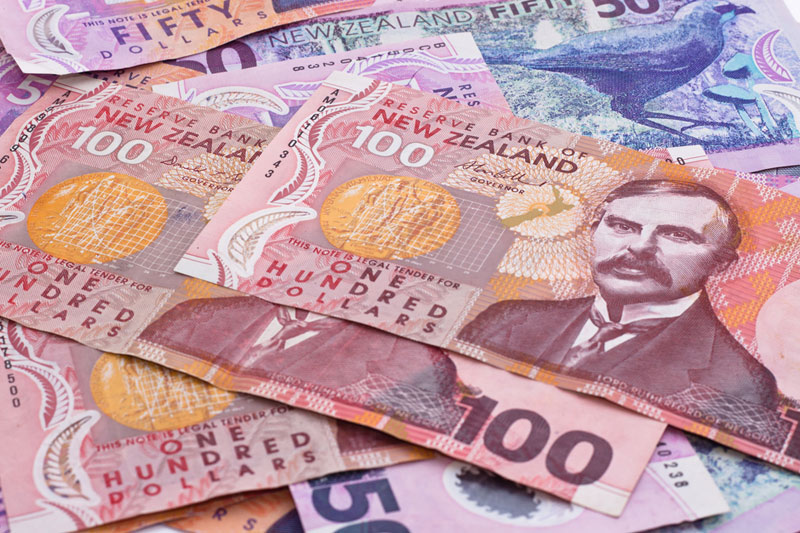Investing.com – NZD/USD fluctuated between small gains and losses on Monday with concerns over the Chinese economy and a boost in New Zealand’s credit card spending setting the tone.
The Reserve Bank of New Zealand reported on Monday that the credit card spending in the country rose by 9.2% in January compared to a 4.7% rise in December.
Also on Monday China’s National Bureau of Statistics reported that country’s house prices, which are based on the transactions involving conventional and conforming mortgages, rose 9.6% in January from a 9.9% in December.
During the weekend G-20 officials concluded their summit in Australia with an announcement that over the next few years they expect the global economy to grow by more than $2 trillion with the help of a strategy laid out by IMF.
USD/JPY traded down 0.28% at 102.20, AUD/USD fell 0.08% at 0.8970, while NSD/USD rose 0.05% at 0.8284.
On Friday it was reported that U.S. existing home sales fell by a larger-than-forecast 5.1% in January. The news came on the heels of a recent series of disappointing U.S. economic reports, which investors have attributed to severely cold winter weather.
Last Wednesday’s minutes of the Federal Reserve’s January meeting showed that officials agreed the current pace of reductions to the bank’s asset purchase program would remain unchanged, so long as the economy shows signs of improvement.
The U.S. central bank is currently purchasing $65 billion of assets per month.
In Europe, the Markit euro zone composite output index ticked down to a two month low of 52.7 this month, but remained close to January’s 31-month high of 52.9.
A modest pickup in euro zone service sector activity was offset by an easing the rate of manufacturing output. However, manufacturing activity continued to outperform services activity, due in large part to strong export demand from outside the euro area.
Germany’s composite output index rose to a 32-month high this month, but France’s composite index fell to a two-month low, as service sector activity declined at the fastest rate in nine months.
The U.S. dollar index, which tracks the performance of the greenback versus a basket of six other major currencies, was down 0.05% to 80.26.
In the week ahead, the euro zone is to release what will be closely watched preliminary data on consumer price inflation on Friday. U.S. data on durable goods orders and consumer confidence will also be in focus.
